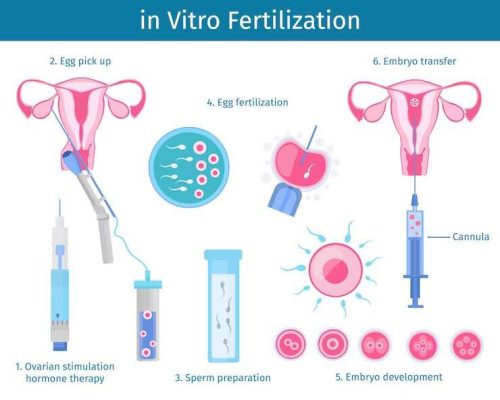What Is the IVF Bill? Your Guide to Understanding This Game-Changing Legislation
In vitro fertilization (IVF) has been a lifeline for millions of families, turning dreams of parenthood into reality. But lately, it’s been making headlines for a different reason: the IVF bill. If you’ve stumbled across this term online or heard it buzzing around in conversations, you’re probably wondering what it’s all about. Is it a law protecting IVF? A funding plan? Something else entirely? Don’t worry—I’ve got you covered. This article dives deep into what the IVF bill is, why it matters, and how it could shape the future for families across the U.S. Whether you’re just curious or personally invested in fertility treatments, you’ll walk away with a clear picture and some fresh insights.
The Basics: What Does the IVF Bill Mean?
At its core, the IVF bill refers to proposed or passed legislation aimed at addressing in vitro fertilization—either by protecting access to it, funding it, or regulating how it’s handled. IVF, if you’re new to the term, is a medical process where an egg is fertilized by sperm outside the body, then implanted into a uterus to grow into a baby. It’s a miracle of modern science, but it’s also expensive, complex, and sometimes controversial. That’s where the IVF bill steps in.
In the U.S., there’s no single “IVF bill” that applies everywhere. Instead, the term pops up in different states and at the federal level, each version tackling unique angles. Some bills focus on ensuring people can use IVF without legal roadblocks. Others aim to make it more affordable through insurance or tax credits. And a few even dive into the nitty-gritty, like what happens to unused embryos. The details depend on where the bill is coming from, but the big idea is the same: IVF is a big deal, and lawmakers want to weigh in.
Take Georgia, for example. In March 2025, the state passed a bill to “codify the right” to IVF, meaning they made it a legal guarantee that families can access this treatment. This came after real-life stories—like Rep. Lehman Franklin’s—highlighted how vital IVF is for people struggling with infertility. It’s not just a medical issue; it’s personal. And that’s why these bills are sparking so much attention.
Why Is the IVF Bill a Hot Topic Right Now?
IVF isn’t new—it’s been around since the late 1970s. So why all the fuss now? The answer lies in a mix of science, politics, and real-world challenges. Over 8 million babies have been born through IVF worldwide, and in some places, like parts of Europe, it accounts for over 5% of all births. In the U.S., it’s closer to 2%, but that number’s climbing fast. More people are turning to IVF as they delay starting families or face fertility hurdles. But with demand rising, so are the stakes.
One big trigger? Legal battles. In 2024, an Alabama court ruling shook things up by calling frozen embryos “children” under state law. Suddenly, clinics paused IVF services, worried about lawsuits. Families were left in limbo, and lawmakers scrambled to respond. States like Alabama and Georgia rushed to pass bills protecting IVF, while others debated what it all means. On the federal level, senators have floated ideas too, like the “Access to Family Building Act,” which would shield IVF nationwide.
Then there’s the cost. A single IVF cycle can run $12,000 to $20,000, and most people need more than one try. Insurance doesn’t always cover it, leaving families to foot the bill. That’s pushed some IVF bills to focus on affordability—think tax breaks or mandates for insurance plans to step up. Add in cultural shifts (more single parents and same-sex couples using IVF) and ethical debates (what happens to extra embryos?), and you’ve got a topic that’s impossible to ignore.
Quick Poll: What’s Your Take?
What’s the biggest IVF issue you’re curious about?
- A) Legal protection
- B) Cost and affordability
- C) Ethical questions
Drop your pick in the comments—I’d love to hear!
How Does the IVF Bill Affect You?
You might be thinking, “This sounds important, but how does it hit home?” Great question. The IVF bill isn’t just for lawmakers or doctors—it’s about real people, maybe even you or someone you know. Let’s break it down.
For Families Trying IVF
If you’re in the thick of fertility treatments, an IVF bill could be a game-changer. A law guaranteeing access means you won’t wake up to find your clinic shut down over legal gray areas. Imagine planning for months, saving every penny, only to hit a wall because of a court ruling—that’s what some families faced in Alabama. Bills like Georgia’s aim to prevent that chaos. And if affordability measures kick in, you might save thousands, making that second or third cycle possible.
For Taxpayers and Voters
Even if IVF isn’t on your radar, these bills touch your wallet and your voice. Funding proposals—like tax credits or public health grants—could shift tax dollars toward fertility care. Some see it as a win for family-building; others question why their money’s involved. Plus, with elections, candidates are taking sides. Your vote could tip the scales on whether IVF gets more support or stricter rules.
For the Future
Think bigger: IVF bills set the stage for how we handle science and family in the 21st century. Will it stay a privilege for the wealthy, or become a right for all? Will embryo debates reshape laws on life and choice? These aren’t just “what ifs”—they’re unfolding now, and the outcomes will echo for decades.
The State-by-State Breakdown: Where IVF Bills Are Popping Up
Since IVF laws vary by state, let’s zoom in on a few key players. This isn’t the full list (that’d take a book!), but it’ll give you a taste of what’s happening.
Georgia’s IVF Protection Act (2025)
Passed in March 2025, this bill locks in the right to IVF. It was a direct response to families like Rep. Franklin’s, who used IVF after years of struggle. The law says clinics and patients can’t be punished for offering or seeking treatment. It’s a big win for stability—no more guessing if IVF’s legal from one day to the next.
Alabama’s Quick Fix (2024)
After the embryo ruling mess, Alabama lawmakers passed a bill in 2024 to shield IVF providers from lawsuits. It doesn’t solve everything (embryo status is still murky), but it got clinics running again. Critics say it’s a Band-Aid, not a cure—expect more debates here.
Federal Efforts: The Access to Family Building Act
On the national stage, Senators Tammy Duckworth and Patty Murray pushed this bill in 2024. It’s still in limbo as of April 2025, but if it passes, it’d protect IVF access across all 50 states. No state could ban it, and patients could sue if denied. It’s bold, but it’s facing pushback from groups worried about embryo rights.
Table: IVF Bill Snapshot
| State/Federal | Focus | Status (April 2025) | Key Win |
|---|---|---|---|
| Georgia | Legal protection | Passed | Guaranteed IVF access |
| Alabama | Clinic immunity | Passed | Clinics reopened |
| Federal | Nationwide access | Pending | Could unify state laws |
The Money Side: Can IVF Bills Make It Affordable?
Let’s talk cash—because IVF’s price tag is a huge hurdle. A typical cycle costs $15,000 on average, per the American Society for Reproductive Medicine (ASRM). Add meds, tests, and multiple tries, and you’re easily at $50,000 or more. Only 19 states require some insurance coverage, and even then, it’s spotty. So, how do IVF bills tackle this?
Tax Credits and Subsidies
Some states, like New York, have toyed with tax credits for IVF costs. A federal version’s been floated too—imagine a $5,000 credit per cycle. It’s not a full fix, but it could ease the sting. Subsidies are rarer, but picture this: a state fund that covers part of your treatment if you meet income rules. It’s not widespread yet, but it’s an idea gaining traction.
Insurance Mandates
Bills in states like Illinois push insurers to cover IVF like any other medical need. The catch? Premiums might rise for everyone. Still, for families, it’s a lifeline—turning a $20,000 out-of-pocket hit into a $500 copay. Data from Resolve: The National Infertility Association shows insured patients are 40% more likely to try multiple cycles, boosting success rates.
Real-Life Math
Say you’re 35, facing a 33% success rate per cycle (ASRM stats). Without help, three cycles cost $45,000. A $5,000 tax credit drops it to $30,000. Full insurance? Maybe $1,500 total. That’s the kind of shift IVF bills could bring.
The Ethical Angle: What’s Stirring the Pot?
IVF isn’t just about science or money—it’s personal and messy. The ethical side of these bills often steals the spotlight, and for good reason.
Embryo Debates
Most IVF cycles create extra embryos. Some get frozen, donated, or discarded. The Alabama ruling called them “children,” sparking a firestorm. Pro-life groups want embryos protected; others say it’s a private choice. IVF bills have to pick a lane—or dodge the question. Georgia’s law sidesteps it, focusing on access, not embryo status. Expect this to keep bubbling up.
Access for All
Who gets IVF? Married couples? Singles? Same-sex partners? Some bills, like the federal one, say everyone deserves a shot. But pushback comes from folks who see IVF as “unnatural” or worry about “designer babies.” It’s a tug-of-war between freedom and tradition.
A Thought Experiment
Imagine you’ve got three frozen embryos. One’s for your next kid, but what about the others? Donate them? Destroy them? If a bill says they’re legally “people,” does that change your call? It’s not sci-fi—it’s today’s reality.
Fresh Insights: 3 Things You Won’t Find Everywhere
Most articles stick to the basics—legal protection, costs, ethics. But there’s more to the IVF bill story. Here are three angles that don’t get enough airtime.
1. The Mental Health Connection
IVF’s a rollercoaster—hope, heartbreak, repeat. A 2023 study in Fertility and Sterility found 60% of IVF patients show signs of anxiety or depression. Yet, no bill (so far) ties mental health support to IVF access. What if a law offered free counseling with every cycle? It’d cost money, sure, but it could lift success rates—stress messes with fertility. One clinic in Colorado saw a 15% bump in pregnancies after adding therapy. Food for thought.
2. Tech’s Role in the Future
IVF’s evolving fast. New tools—like AI picking the best embryos—could slash costs and boost odds. A 2022 paper from Nature showed AI-cut error rates by 20%. But bills aren’t keeping up. What if they funded research or regulated these tools? It’s not just about access today—it’s about making IVF better tomorrow. Georgia’s law hints at this, encouraging “innovation,” but details are thin.
3. The Ripple Effect on Adoption
Here’s a curveball: more IVF could mean fewer adoptions. In 2020, U.S. adoptions hit a low of 55,000, per the National Council for Adoption. If IVF gets cheaper and easier, will that drop more? No bill’s tackling this, but it’s worth a look. On the flip side, embryo donation (IVF leftovers) could rise, giving adoption a new twist. It’s a hidden impact we’re just starting to see.
Your IVF Bill Toolkit: Practical Tips
Ready to dig deeper or take action? Here’s how to navigate the IVF bill world, whether you’re a patient, advocate, or curious bystander.
Step-by-Step: Stay in the Loop
- Track Local Laws – Check your state legislature’s website (e.g., georgia.gov) for IVF updates.
- Follow Federal Moves – Congress.gov lists bills like the Access to Family Building Act.
- Join the Conversation – Groups like Resolve offer newsletters and forums.
- Ask Questions – Call your rep—what’s their stance on IVF?
✔️ Do’s and ❌ Don’ts
✔️ Do research clinics covered by new laws—they might offer discounts.
✔️ Do talk to your insurer about IVF benefits, even if it’s not mandated yet.
❌ Don’t assume every bill helps—read the fine print.
❌ Don’t wait for laws to fix everything—save up if you can.
Mini Quiz: Test Your IVF Bill IQ!
- What’s one goal of Georgia’s IVF bill?
a) Ban IVF
b) Protect access
c) Raise costs - True or False: All states cover IVF in insurance.
- What’s a big ethical debate tied to IVF bills?
Answers: 1) b, 2) False, 3) Embryo status. How’d you do?
The Big Picture: Where Are We Headed?
IVF bills aren’t just laws—they’re a window into our values. Are we a society that fights for family, no matter the cost? Or one that draws lines based on belief? As of April 2025, the U.S. is split. States like Georgia and Alabama are all-in on access. Others lag, tangled in ethics or budgets. Federally, it’s a coin toss—will Congress unify the rules, or leave it a patchwork?
Globally, we’re not alone. Denmark funds IVF for up to three cycles—over 10% of babies there are IVF-born. Australia’s at 4.1% with tax help. The U.S. could follow, or carve its own path. One wild card? Public opinion. A 2024 Pew poll showed 70% of Americans support IVF, but 40% worry about embryo rights. That tension’s driving the debate.
My Two Cents
Here’s a hunch: IVF bills will grow bolder. Think hybrid plans—tax credits plus mental health perks, maybe even AI incentives. But they’ll hit roadblocks too—ethics won’t fade quietly. For families, it’s hope on a tightrope. For society, it’s a mirror. What do you see?
Wrapping Up: Why This Matters to You
The IVF bill isn’t some dusty law—it’s about life, choice, and fairness. Whether you’re dreaming of a baby, voting in November, or just scrolling for news, it’s in your orbit. It’s about making sure a couple in Atlanta or a single mom in Chicago gets the same shot at parenthood. It’s about balancing science with soul. And it’s about asking: what kind of future do we want?
So, next time you hear “IVF bill,” don’t tune out. It’s not just politics—it’s people. Maybe it’s you. What do you think—should IVF be a right, a privilege, or something in between? Share your thoughts below. Let’s keep this conversation going.
Final Interactive Bit: Your Turn!
If you could design an IVF bill, what’s one thing you’d add? More funding? Embryo rules? Counseling? Drop your idea—I’m all ears!




